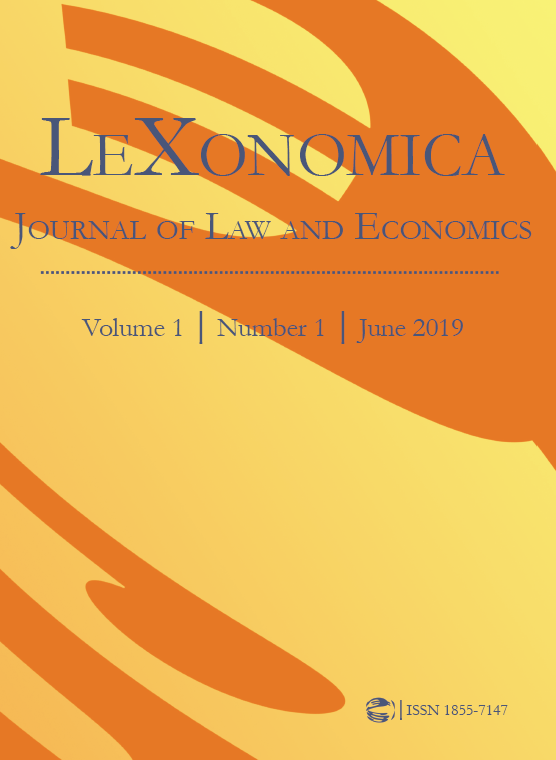Obligatory Insurance as a Form of Social Engineering: A Comparison Paper Between the United States, Italy, Aruba and Poland
Keywords:
obligatory insurance, obligatory motor vehicle insurance, obligatory health insurance, obligatory professional liability insurance, workers’ compensation insurance, social insuranceAbstract
Insurance has been around for centuries. Traditionally, it has been purchased to protect the purchaser, namely, the insured. Over time, the insurance industry has developed an increasing number of products, so that at present one can purchase insurance to cover nearly every risk imaginable. The concept of mandatory or obligatory insurance is a fairly recent development. It traces its origins to the widespread use of the motor vehicle and also employment. Obligatory insurance is designed to protect certain classes of persons, such as workers and those who sustain injury and damage at the hands of others. In this article, the authors compare the current state of obligatory insurance in four democratic countries: the United States, Italy, Aruba and Poland. The aim of the article is to catalogue the similarities and differences in obligatory insurance in those four countries. The countries studied all have obligatory insurance designed to offer some degree of protection to workers injured on the job, and in the course and scope of their work, and to those involved in vehicular collisions. The other primary takeaway from our research is that, predictably, there is less obligatory insurance in the United States than in the other countries studied.
Downloads
References
Borman, C. (2012) Het Statuutvoor het Koninkrijk (Deventer: Kluwer).
Caso G. (1953) L'assicurazione contro le malattie in rapporto con la riforma della previdenza sociale in italia, La riforma medica, 67, pp. 132–134.
Cocci D. (1960) L'assicurazione obbligatoria dei veicoli a motore per la responsabilità civile in italia, Assicurazioni: rivista di diritto, economia e finanza delle assicurazioni private, 27(1), pp. 497–530.
Dijk, Mr. J.W.S. van, Nikkels-Agemaen, M.J.A., Winters H. FFP (2006) PraktijkgidsZorg&Inkomen (Deventer: Kluwer).
Dosi G. (2016) Il diritto contrattuale di famiglia: le funzioni di consulenza e negoziazione dell'avvocato (Giappichelli: Torino).
Franasti G. (2018) L'assicurazione obbligatoria contro la disoccupazione involontaria in Italia. Dalla grande guerra alla carta del lavoro (1915–1927), Studi Storici, 59(2), pp. 367–401.
Hamilton, Mr. G.J.A. (2001) De algemene ziektekostenverzekering van Aruba, Zorg & Verzekering, Bohn, Stafleu, Van Loghum, Jaargang 9, nr. 1, 2001, p.129–139.
Hamilton, Mr. G.J.A. (2005), Eenzorgverzekeringvooriedereen. PS-special Zorgverzekeringsweten Wet op de zorgtoeslag (Deventer: Kluwer).
Heller, A. T. (2017) An Overview of Medical Malpractice Law in the United States Including Legislative and the Health Care Industry’s Responses to Increased Claims. Medicine, Law & Society, 10(2), pp. 139–163.
Krajewski, M. (2011) Ubezpieczenie odpowiedzialności cywilnej według kodeksu cywilnego. (Warszawa: Wolters Kluwer Polska).
Kowalewski, E. (2004) Prawo ubezpieczeń gospodarczych. Komentarz (Warszawa: LexisNexis Polska).
Kowalewski, E. (2013) Stan prawny ubezpieczeń obowiązkowych w Polsce (Toruń: PIU).
Nowakowski, L. (2006) Ubezpieczenie odpowiedzialności cywilnej z tytułu wykonywania zawodu adwokata - wybrane problemy, Palestra, 1–2, pp. 26.
Orlicki, M. (2011) Ubezpieczenia obowiązkowe (Warszawa: Wolters Kluwer Polska).
Pagni I., La riforma della responsabilità medica. I profili processuali, Questione Giustizia, 2018, 1, pp. 174–189.
Sens, I. M, de Pijper, Mr. B., Wildenburg, Drs. A. (2007) De KleineGidsvoor de Nederlandsesocialezekerheid (Deventer: Kluwer).
Serwach, M. (2010) Prawo ubezpieczeń gospodarczych. Tom I, Komentarz, II edition. (Warszawa: Wolters Kluwer Polska).
Silverman, R. E. (2016) So Sue Me: Doctors Without Insurance, Journal of Medicine, https://www.ncnp.org/journal-of-medicine/1869-so-sue-me-doctors-without-insurance.html (accessed: 9. 6. 2019).
Szymendera, Scott. D. Workers’ Compensation: Overview and Issues. Congressional Research Service, October 18, 2017, available at :https://www.fas.org.
Velliscig L. (2019) Come garantire i danneggiati. Considerazioni sul ruolo dell'assicurazione, Annuario di diritto comparato e di studi legislativi, 10, pp. 539–561.
Weger, D. (2018) Going Bare – Are Doctors Required to Have Malpractice Insurance?, https://www.gallaghermalpractice.com/blog/post/going-bare-are-doctors-required-to-have-malpractice-insurance (accessed: 9. 6. 2019).
Żółtko, M. (2018) Odpowiedzialność ubezpieczyciela za szkody komunikacyjne powstałe w związku z OC posiadaczy pojazdów mechanicznych (zagadnienia praktyczne), Palestra, 7–8, pp. 24–31.
Downloads
Published
Issue
Section
License
© Univerza v Mariboru, Pravna fakulteta, Univerzitetna založba
Prosti pristop
